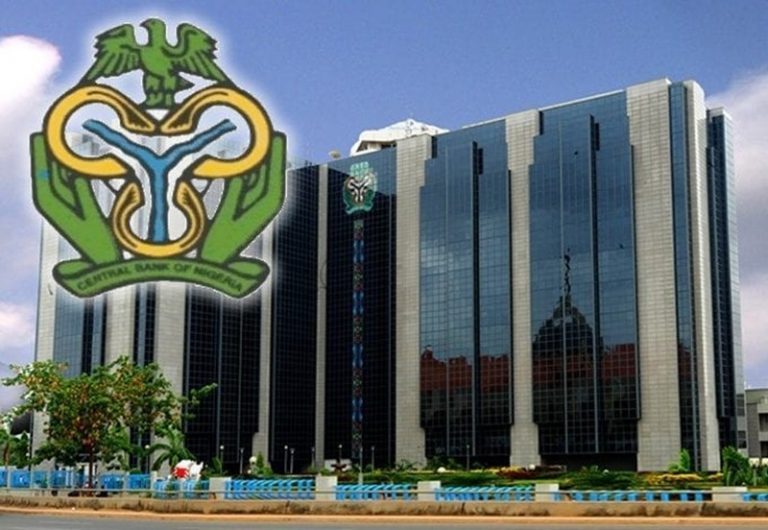
The Central Bank of Nigeria (CBN) says Nigeria recorded a Balance of Payments (BOP) surplus of $6.83 billion for the 2024 financial year, marking a dramatic reversal from deficits of $3.34 billion in 2023 and $3.32 billion in 2022.
The apex bank attributed the improvement to macroeconomic reforms, increased exports, and renewed investor confidence.
However, some analysts say the figures raise more questions than answers, partly due to the trust deficit in government economic data.
Register for Tekedia Mini-MBA edition 19 (Feb 9 – May 2, 2026).
Register for Tekedia AI in Business Masterclass.
Join Tekedia Capital Syndicate and co-invest in great global startups.
Register for Tekedia AI Lab.
The CBN, in a statement signed by its Acting Director of Corporate Communications, Mrs. Hakama Sidi-Ali, said the current and capital accounts posted a combined surplus of $17.22 billion in 2024, largely driven by a goods trade surplus of $13.17 billion. This was attributed to stronger oil and non-oil exports, alongside a significant reduction in imports, notably petroleum products.
Petroleum imports dropped 23.2% to $14.06 billion, while non-oil imports fell by 12.6% to $25.74 billion. At the same time, gas exports jumped 48.3% to $8.66 billion, and non-oil exports increased by 24.6% to $7.46 billion, which the CBN said reflected progress in Nigeria’s diversification drive.
Remittance inflows also played a central role, climbing 8.9% to $20.93 billion. International Money Transfer Operator (IMTO) flows surged by 43.5%, reaching $4.73 billion. Development assistance climbed to $3.37 billion, and net acquisition of financial assets hit $12.12 billion on the back of a 106.5% jump in portfolio investments and an increase in local foreign currency holdings by $5.41 billion.
The apex bank said Nigeria’s external reserves increased by $6.0 billion, ending 2024 at $40.19 billion, and touted a 79.5% drop in net errors and omissions as evidence of improved transparency and better data management.
Deepening Doubt Over Official Data
In recent months, there has been growing skepticism over the data coming out of the Central Bank and other government agencies, with many accusing authorities of painting a misleading picture of Nigeria’s economic health.
Earlier this month, the CBN claimed that Nigeria’s Net Foreign Exchange Reserves (NFER) stood at $23.11 billion, sparking fresh debate among analysts. The declaration contradicted the 2023 FX report by the central bank, which stated that gross reserves were $37.09 billion in December 2022 and $40.52 billion in December 2021—figures that critics say ignore liabilities such as currency swaps, forwards, and debt obligations.
JPMorgan had in 2023, estimated the CBN’s actual net FX reserves to be just $3.7 billion as of the end of 2022. The apex bank dismissed JPMorgan’s assessment as inaccurate but failed to provide a comprehensive breakdown of its liabilities. The CBN governor said Nigeria’s foreign reserves rose to $39 billion in October 2024. These have deepened doubts about the CBN’s willingness to disclose the true state of the country’s reserves.
“Can the CBN also share with us their short and medium term foreign liabilities for: — swaps (cash calls with interest rollover) — forwards — debt obligations (in their payment schedule)?” asked economist Kelvin Emmanuel.
Concerns over credibility haven’t been limited to the CBN. The National Bureau of Statistics (NBS) came under heavy criticism last year after announcing plans to include the economic value of illegal activities such as drug trafficking and prostitution in GDP calculations. The move, which the NBS said was in line with international standards, was widely condemned as an attempt to artificially inflate Nigeria’s GDP amid economic stagnation and rising poverty.
Concerned Nigerians lament that the trend of questionable data practices appears to be deepening, with economic authorities increasingly focused on shaping narratives rather than confronting hard realities.
However, Cardoso has continued to project confidence, saying the rebound in Nigeria’s external balances reflects “effective policy implementation and the bank’s unwavering commitment to macroeconomic stability.”
But with trust in official figures waning, some say it’s going to take more than upbeat statements to restore confidence. Analysts and investors are demanding transparency – a full, public accounting of the central bank’s liabilities, forward contracts, and swap obligations—not just headline figures that obscure the depth of Nigeria’s economic challenges.



